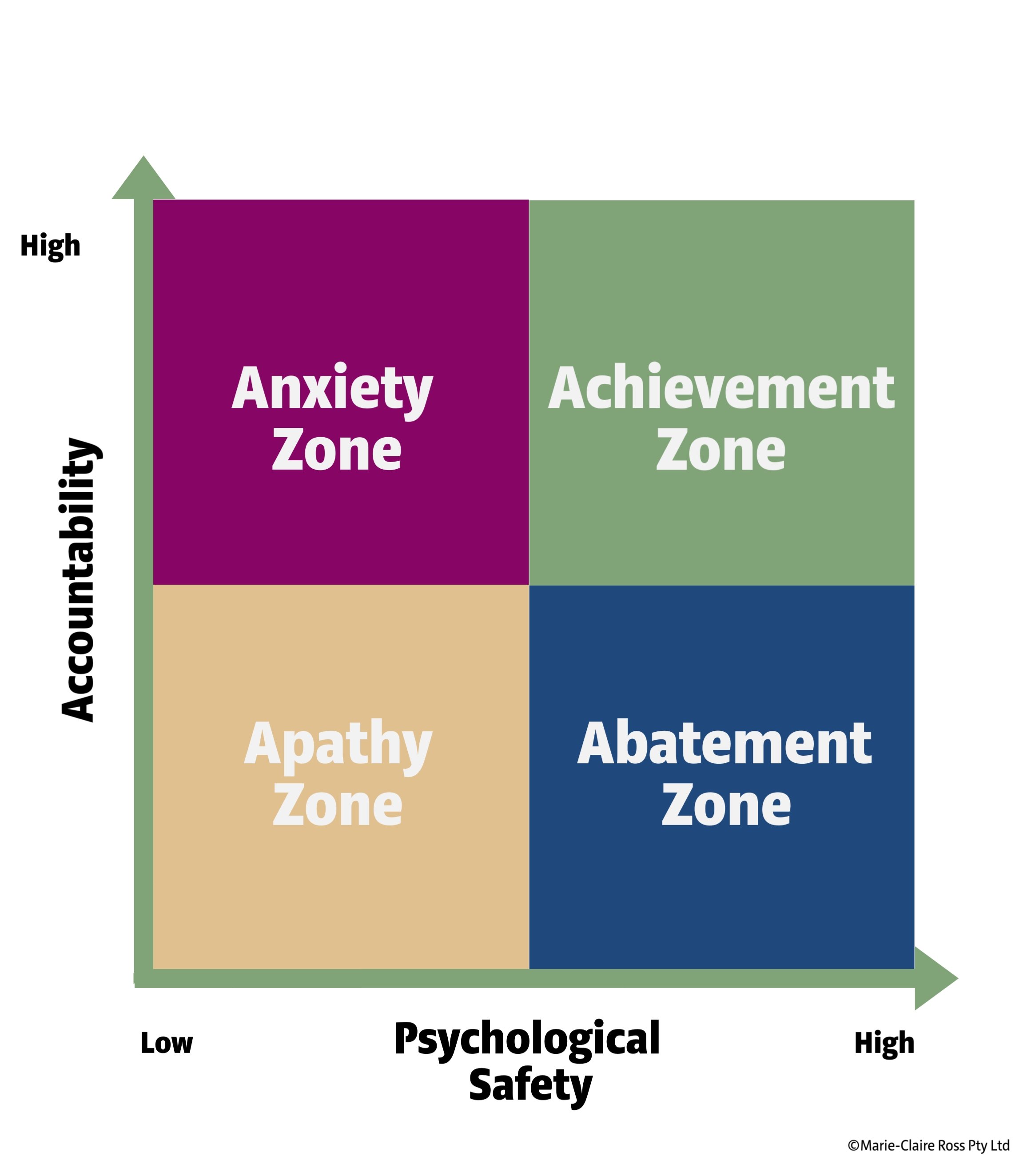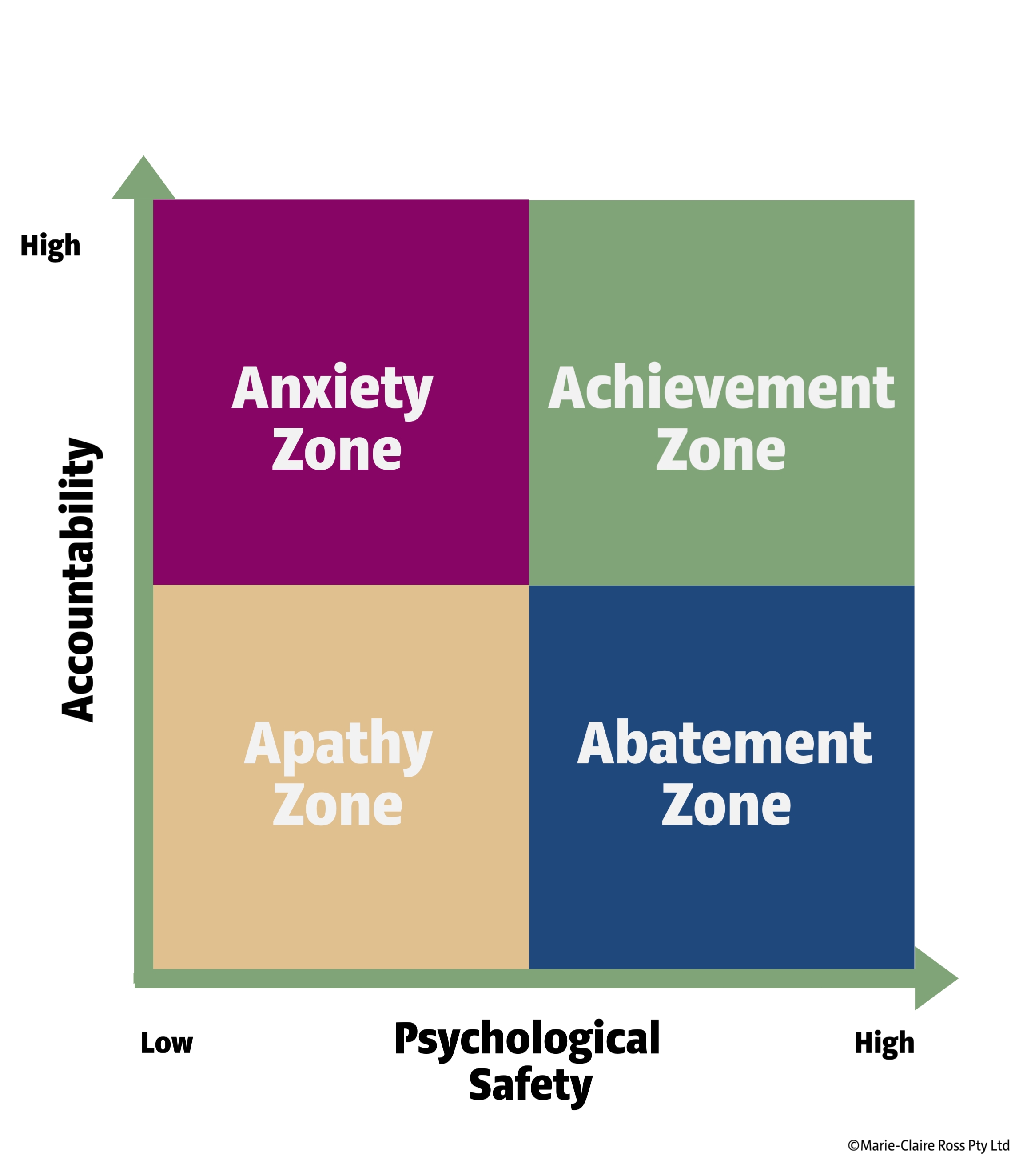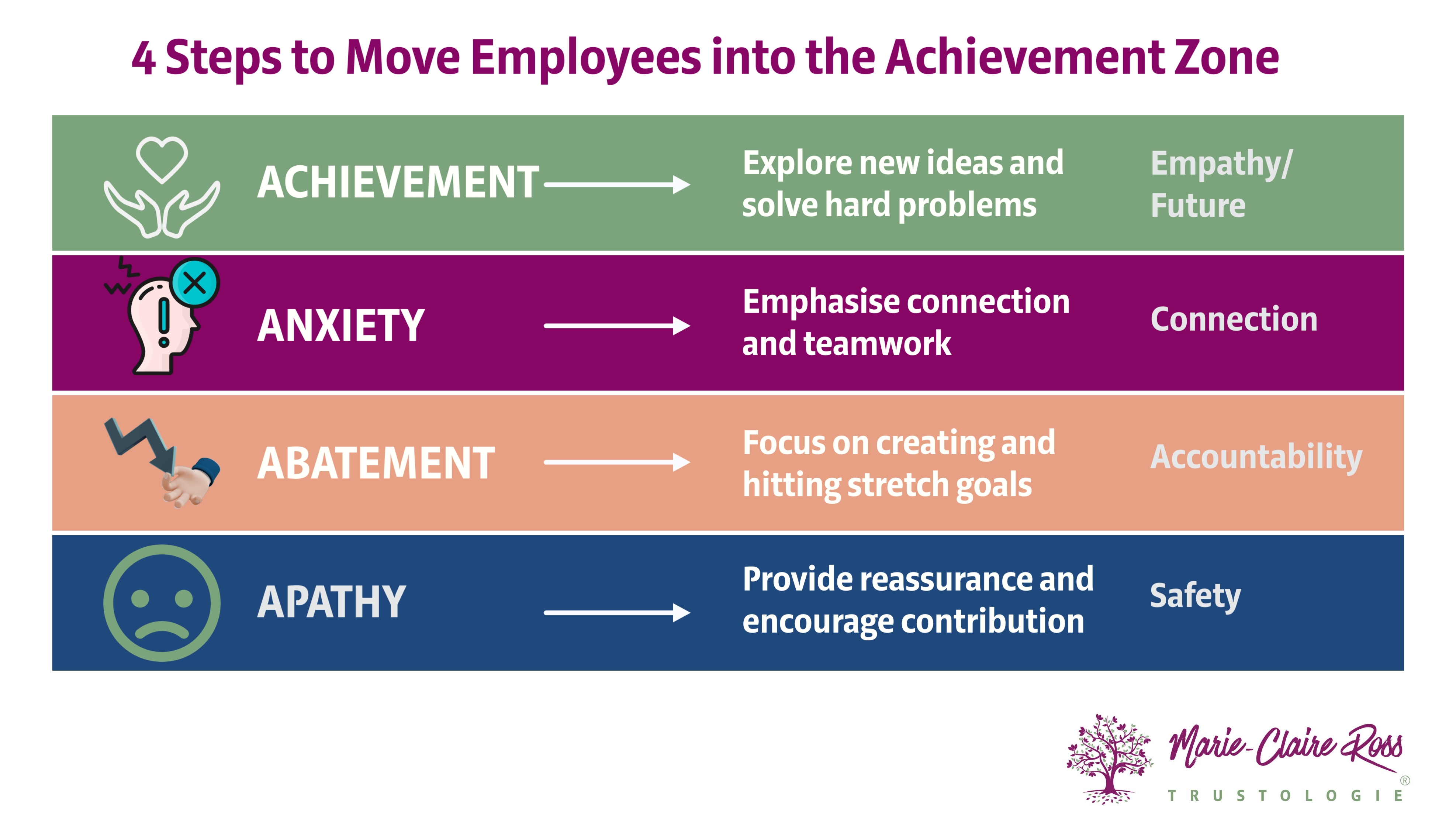11 min read
4 Practical Strategies for Better Emotional Management in the Workplace
I have a friend who often finds herself at the mercy of her emotions. Recently, she called me to rehash a confrontation she’d had with a group of...
Develop leaders, strengthen executive teams and gain deep insights with assessments designed to accelerate trust and performance.

Transform how your leaders think and perform with keynotes that spark connection, trust and high-performance cultures.

Explore practical tools, thought-leadership and resources to help you build trusted, high-performing teams.

Trustologie® is a leadership development consultancy founded by Marie-Claire Ross, specialising in helping executives and managers build high-trust, high-performing teams.

3 min read
Marie-Claire Ross : Updated on June 28, 2023

It can be a game-changer for leaders to look at how much psychological safety and accountability they create in their teams.
As I discuss in my book, Trusted to Thrive, (you can download a free chapter here), there are four different team zones based on the intersections between psychological safety and accountability.

These zones represent where our teams are, our direct reports and even ourselves. Of course, our team is more likely to be in the zone we are playing in.
Not that long ago, I did a keynote to 200 leaders in the room. Using an electronic poll, 65% of the leaders nominated themselves as being the Achievement Zone.
Of course, this is no easy feat. And pretty rare. It requires a lot of dedication and self-reflection to stay in the Achievement Zone for any sustained length of time. Things can easily move us out of the zone - either personally or outside of our control.
You also can't improve your results when you think you're really good at something. It's important as leaders that we take an honest, non-judgemental look at where we are now, so we can work out the right steps to where we want to go. Otherwise, we keep living our life on autopilot and getting frustrated when we don't get the results we want.
With that in mind, take a look at the statements below and work out how many statements resonate the most with you. The more you have in any of the four quadrants, then the more likely you are to be in this zone. You can refer to my book, articles on my blog or join my Leadership Mastermind for advice on how to move through the zones.
|
Achievement
|
|
Anxiety
|
|
Abatement
|
|
Apathy
©Marie-Claire Ross Pty Ltd |
If you see yourself in any of these statements from Anxiety to Apathy, then changing old beliefs and habits is important to improving your situation. Otherwise, it will be hard to maintain or create the beliefs needed to stay in the Achievement Zone.
Getting a coach, working with a mentor, seeing a therapist or working with an accountability group can help. All it takes is the willingness to want to improve through changing how you see the world and do things. It all starts with honestly reflecting on where you are now.
If you'd like to join my Leadership Mastermind to help, there are some limited spaces available. You can find out more here.

11 min read
I have a friend who often finds herself at the mercy of her emotions. Recently, she called me to rehash a confrontation she’d had with a group of...

9 min read
True leadership presence isn’t a performance or a set of charisma hacks; it is the felt experience of who you are being in the room. By cultivating...

13 min read
As teams return from their summer (or winter) break, you may notice subtle shifts in your team’s energy. Even if the end of year was positive, a new...

One of the models I unpack in my book, Trusted to Thrive, (you can download a free chapter here) highlights four different team zones based on the...

A study byCornell University and Green Peak Partnerswanted to uncover why 72 high performing CEOs running companies from $5 million to $50 billion...
What’s your Cohesive Leadership Style?